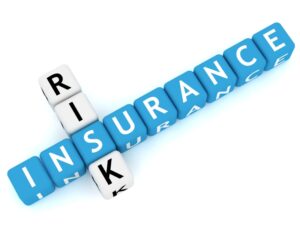Storm Preparations, Are You Ready?
It only takes one storm to change your sense of security in your home. A violent storm can destroy your home, your car the stores that you shop in. Being prepared is vitally important. Super Storm Sandy changed the way we react to storms in this area.
Hurricanes are a form of tropical cyclones that are capable of causing devastating damage to communities. Hurricanes are storm systems with circulating air and sustained wind speeds of 74 miles per hour or higher. The strongest hurricanes can have wind speeds exceeding 155 miles per hour. Hurricane season lasts from June to November and peaks between August and October.
It’s vitally important to select a safe place for the family to weather the storm. This may be a location in your home – consider a windowless room in your house or in the basement. If your home doesn’t have a safe area or the storm is considered to be too large to consider staying in your home or you have been instructed to evacuate, then you should know the locations of at least two emergency shelters near your home.
Every effort in taking proper precautions and preparing is paramount.
Storm preparations – Before the storm
Last minute preparations should include:
- Make sure your windows are protected and your home is secured.
- Clean containers for cleaning water. Line the bathtub with plastic sheeting or a clean shower curtain, or caulk the drain with silicone caulking — it holds water for weeks and cleans up easily when dry. Plan on three gallons per person, per day for all uses (including flushing the toilet).
There is No Substitute for being prepared. After the devastation from Super Storm Sandy many areas didn’t have electric, water, food or even cars to get the necessities of life.
Storm Preparations – Before a storm prepare a kit. You will eventually need it as our weather is getting more intense.
Your kit should include the following:
- Flashlights and fresh batteries
- Candles
- Battery-powered radio or TV and extra batteries
- Land line phone and a fully charged cell phone
- Car charger for your cell phone
- Supply of bottled water (one gallon per person per day)
- Non-perishable foods that require no heating
- Blankets, bedding or sleeping bags
- First Aid kit and prescription medications (remember you pharmacy may be closed as well)
- Hand-operated can opener
- Hand tools
- List of emergency phone numbers
- Baby wipes
- Hand Sanitizer
- Gas for your generator if you have one (make sure the generator is outside and well vented from your home)
- Deck of cards and other small games
Storm preparations – During the storm:
 Howling winds, driving rain and the threat of tornadoes make riding out a hurricane a scary ordeal.
Howling winds, driving rain and the threat of tornadoes make riding out a hurricane a scary ordeal.
Follow these tips for staying safe in your home during a hurricane:
- Stay inside and away from windows, skylights and glass doors. Find a safe area in your home (an interior room, a closet or bathroom on the lower level).
- If flooding threatens your home, turn off electricity at the main breaker.
- If you lose power, turn off major appliances such as the air conditioner and water heater to reduce damage.
- Do not use electrical appliances, including your computer.
- Do not go outside. If the eye of the storm passes over your area, there will be a short period of calm, but at the other side of the eye, the wind speed rapidly increases to hurricane force and will come from the opposite direction. Also, do not go outside to see “what the wind feels like.” It is too easy to be hit by flying debris.
- Beware of lightning. Stay away from electrical equipment. Don’t use the phone or take a bath/shower during the storm.
What to do after a Storm strikes:
- Locate your emergency kit
- Tune in to local news and weather on your battery powered radio or television
- Do not touch fallen or low-hanging wires of any kind under any circumstances. Stay away from puddles with wires in/near them. Do not touch trees or other objects in contact with power lines.
- USE PHONES ONLY FOR EMERGENCIES. Call 911 only for life-threatening situations.
- Call police or utility companies immediately to report hazards such as downed power lines, broken gas or water mains, overturned gas tanks, etc.
- Watch for weakened roads, bridges, tree limbs or porches which could collapse unexpectedly.
- After power is restored, check refrigerated food for spoilage. (Spoiled food is the cause of much sickness two days to a week after the storm.)
- When reinstalling a CB, TV or satellite antenna, check in all directions to be sure no power lines are nearby. The same goes for climbing trees to clear debris.
- Do not operate charcoal grills, propane camping stoves or generators indoors.
- Those with special medical needs (oxygen, etc.) should go to special needs shelters only. Special needs shelters do not provide hands-on medical care, only medical monitoring. Bring a caregiver with you if needed.
At Klein Property Management we will do our best under the extreme circumstances to be in touch with all of our residents. In an extreme storm, if the internet is available, we will be answering questions via our Facebook page https://www.facebook.com/KleinPropertyManagement or email if it is available.
Also – Visit us at www.kleinpropertymanagement.com for the latest tips, and trends in property management.




